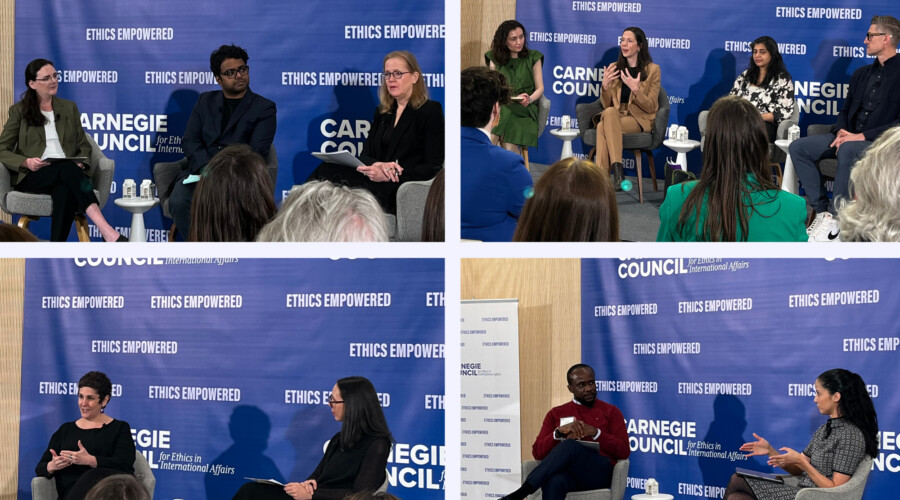Carnegie Council for Ethics in International Affairs is pleased to announce the appointment of Janos Pasztor as senior fellow and director of the new Carnegie Climate Geoengineering Governance Project.
In addition to his project at Carnegie Council, Mr. Pasztor is also senior advisor to the UN secretary-general (UNSG) on climate change. He has over 35 years of work experience in the areas of energy, environment, climate change, and sustainable development. In 2015, he worked as UN assistant secretary-general for climate, and before that he was acting executive director for Conservation (2014) and policy and science director (2012-2014) at WWF International.
"The Project's long-term objective is to encourage dialogues on and to develop governance frameworks for climate geoengineering," said Pasztor. "It will build on the best available assessments of the science—physical, economic, and social—as well as of the policy options available for potential governance framework, such as those being considered by the Academic Working Group on International Governance of Solar Climate Engineering."
One major means of achieving this objective will be to introduce into all key relevant intergovernmental institutions and processes the issues related to geoengineering and earthsystem governance.
Outreach to all key stakeholders, including governments and non-state actors, such as the private sector and civil society, will be crucial to increase the level of dialogue in order to ensure that different aspects of the challenges are addressed.
In parallel, the Project will consider the key policy options that may be necessary for guiding further research, and possible future deployment. These options can include guidelines adopted by intergovernmental bodies; recommendations of one or more high-level panels or commissions; as well as, potentially, protocols to existing treaties, or even the development of new treaties over time.
The Project will neither promote nor be necessarily against the potential deployment of climate geoengineering. The project will, however, advocate for the development of governance frameworks necessary for potential deployment, as well as for expanded research on such techniques, including their environmental, social, and economic impacts.
ABOUT CARNEGIE COUNCILFounded by Andrew Carnegie in 1914, Carnegie Council for Ethics in International Affairs is an educational, nonprofit, nonpartisan organization that produces lectures, publications, and multimedia materials on the ethical challenges of living in a globalized world.



